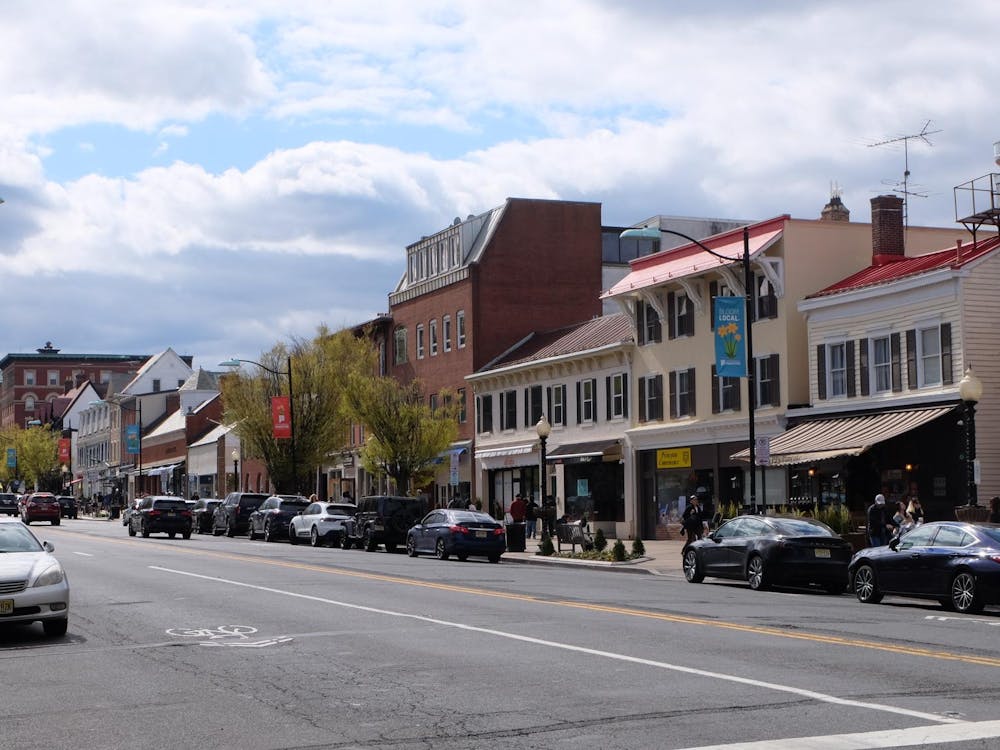Two years after the Department of Music decided on a cost-cutting measure that would eliminate subsidies for private lessons for University music students, members of Princeton University Sinfonia and other student musicians are still feeling the effects of the reduced funding, despite the recent improvement in University finances.
Before fall 2009, students pursuing concentrations or certificates in music received full subsidies for music lessons, while members of Sinfonia, the Princeton University Orchestra, Jazz Ensemble, Glee Club and Chapel Choir received half subsidies for music lessons. Larger groups, such as the orchestra, still receive half subsidies.
Music professor and acting department chair Wendy Heller explained in an email that the decision to discontinue aid was largely due to post-recession budget cuts. “The elimination of the subsidies for Sinfonia [and other groups] was an unfortunate consequence of the 2008 financial crisis,” she said.
However, since the 2009 decision, and despite the upturn in the financial environment, many students said that they have been forced to reduce or eliminate their music lessons, even while they are often necessary for their academic pursuits.
Shuxin Zhan ’15, a Sinfonia violinist, decided to take half-hour lessons instead of full-hour ones due to the lack of subsidies.
“Since I don’t get financial help, I reduced the length of my lessons to make them more affordable,” she said. “But then I often don’t have enough time to go through a piece thoroughly with my teacher.”
Violinist Katherine Li ’12 resorted to similar measures to reduce the cost of her lessons. Li played in Sinfonia during her freshman year and joined the orchestra in her sophomore year. During those years, she took lessons every week because they were either half- or fully subsidized. But since rejoining Sinfonia in the spring of her junior year — by which time the subsidies to the group had been cut — she has been taking lessons every other week.
“I think that if the subsidies were still available to Sinfonia members, I would still be taking lessons every week,” Li said.
Li noted that many talented instrumentalists on campus who join Sinfonia instead of PU Orchestra do so because they are looking for a group with less time commitment, but instead “there’s been a bit of a stigma regarding Sinfonia as being for less advanced players, and Sinfonia’s subsidy cut really perpetuates that sort of perception,” she said.
Meanwhile, Sinfonia violinist Jonathan Wang ’12 said he believes the issue of fairness is only secondary to the fact that Sinfonia members are very committed to music.
“I think it’s very unfortunate that Sinfonia members do not get subsidies, regardless of the group’s position vis-a-vis other student groups,” he said. “We are deeply invested and should be given every opportunity and incentive to continue our musical education through private lessons.”
Wang took private lessons at the reduced rate his freshman year but decided to stop taking lessons after the subsidy cut, partly because he had a busier schedule in later years, but also because the cost of lessons became higher without the aid than what he was willing to pay.

On the other hand, PUO violinist Caitlin Wood ’15 receives half-subsidies for her violin lessons but said she would have decided to take lessons even if subsidies were not available, as she came to college knowing that she would definitely continue playing the violin.
“I’m quite accustomed to having to pay over $100 dollars per hour for music lessons, so lesson fees here pale in comparison,” she said.
PUO co-president and percussionist Kevin Laskey ’12, who is concentrating in music, is granted full subsidies for his private lessons and so is not personally affected by the change in subsidy policy. However, because he does know members in Sinfonia who face the difficult decision of paying the full price out of their own pockets or dropping lessons entirely, he said he hopes that the University will find a way to continue supporting Sinfonia members.
“What’s interesting for me is that a good deal of students in the subsidized ensembles don’t take the subsidy, so my question would be whether it’s possible to extend those unused spots to other students,” he explained.
The Department of Music noted that it hopes to reintroduce the aid for Sinfonia students.
“We are very much hoping to find the funds to restore the subsidies in the not distant future,” Heller said.







